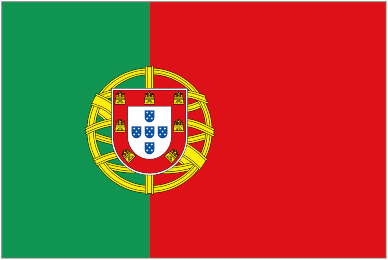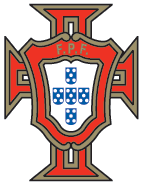The Portugal Soccer Team
 The other Iberian team, Portugal has seen itself obtain a good degree of success on the international stage in recent years.
The other Iberian team, Portugal has seen itself obtain a good degree of success on the international stage in recent years.
The smaller size of Portugal means that there is less of a talent pool to choose from. At the same time, less economic prosperity means that the domestic teams struggle to retain locally developed talent who instead prefer to head to the bigger paycheques that can be found in Spain and England.
The Golden Age of Portuguese Soccer
The Golden Generation of Portuguese soccer has seen the country develop some wonderful talent as of late, and this has propelled the national team to a FIFA ranking as high as number 3, the highest the country has ever achieved.
Despite much promise however, the Portuguese have been unable to cement themselves as one of soccer’s elite teams. Portugal has been able to reach the semi final of the World Cup on two occasions, in 1966 and 2006, with the squad getting their best ever finish as third place in the 1966 tournament.
Regionally, Portugal managed to reach the finals of the European Tournament in 2004, before they lost to the underdog Greece in a match that saw the winning team retreat into a defensive shell and frustrate the usually offensively talented Portuguese team.
Portuguese Soccer Style
 The Portuguese style is typical of Latin American styles, bearing a passing resemblance to the Brazilian soccer style of their former South American colony.
The Portuguese style is typical of Latin American styles, bearing a passing resemblance to the Brazilian soccer style of their former South American colony.
Much less physical then English soccer, Portugal soccer relies on the finesse and skill of their gifted players to succeed. It is highly dependent on having players who possess the skills to be able to win one-on-one battles and finish scoring opportunities when available.
The bulk of the play is built up through the midfield with lots of passing and possession. Players will make quick runs at net with the ball at their feet, or look for through balls to open space. Counter-attacks and long balls are seldom seen as these types of plays typically give up the possession that the style depends on.
Defensively, Portugal does not have the same level of strength as the Italian team may possess, nor does it focus on a particularly defensive style of play. Like Brazil, Portugal instead prefers to maintain ball possession to limit opposition chances.
The Future of Portuguese Soccer
Many of the players from the golden generation have already retired or are quickly approaching the end of their international careers. As a result, a new era of players, spearheaded by the charismatic superstar Cristiano Ronaldo, is leading the charge on the international front.
Unfortunately, the national team in recent years has seen no more success than in the past, with a disappointing exit from the 2010 World Cup at the hands of tournament winners Spain leaving many in the Portugal soccer scene disappointed.
The new generation has large shoes to fill in order to achieve the same level of promise as years past. Even though little was actually won, the teams of years past were very competitive.
With less elite talent being developed by the domestic leagues, the current crop of players must work extra hard to match the legacy of the golden generation and at least prove that they can remain relevant in an increasingly competitive international soccer scene.
Take a look at other european soccer styles:











